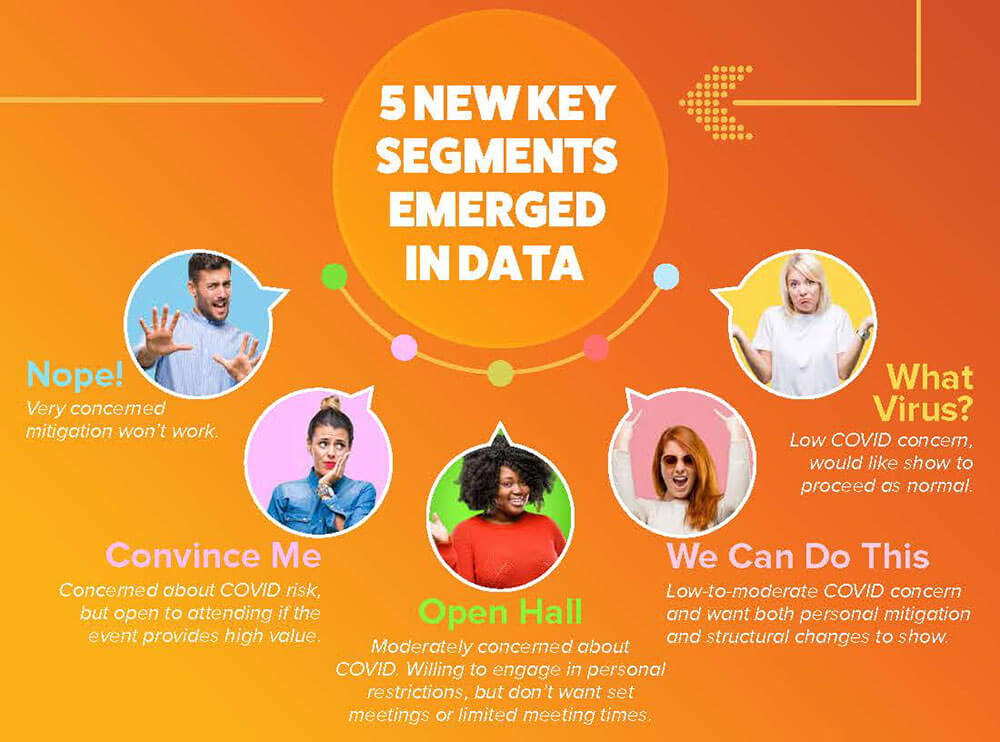
GES grouped responses to a recent survey into five segments, or personas, of how people feel about a return to in-person events. (Courtesy GES)
GES surveyed 1,330 attendees in June and July to understand their willingness to return to physical events, and their concerns around safety and spread of the virus at face-to-face events. From the survey results, GES grouped responses into five segments or personas:
1. Nope — very concerned mitigation (temperature checks, mandatory face masks, required use of tech or mobile apps, touch-free practices, and explanations of cleaning and hygiene) won’t work. Only 12 percent of respondents fell into this category.
2. Convince Me — concerned about COVID risk, but open to attending if the event provides high value. Nearly one-quarter (24 percent) were in this camp.
3. Open Hall — moderately concerned about COVID. Those willing to engage in personal restrictions but didn’t want set meetings or limited meeting times were equal in number (24 percent) to the Convince Me’s.
4. We Can Do This — Low-to-moderate COVID concern, wanting evidence of both personal mitigation and structural changes. Seventeen percent of respondents identified with this sentiment.
5. What Virus? Low COVID concern, would like shows to proceed as normal. Twenty-three percent were wide open to returning to physical events.
Adding up the Numbers
In total, 88 percent of respondents, GES said, are open to attending shows in person. The majority — 65 percent — demand some form of mitigation in order to attend, while 23 percent do not.
It is now more important than ever, the survey results indicate, to design your show to customer segments and mitigation needs. The company’s recommendations include:
Review your attendee base to identify your show’s core customer segments and design to their needs.
Recognize that certain shows may have higher or lower COVID concerns on average — such as a health-care congress versus a retail trade show.
Balance considerations between constituents who may have conflicting views of acceptable practices at shows. For example, design your show schedule to accommodate low- and high-risk visitors and consider education activities that can be separated and possibly made digital. In addition, show changes can include visiting exhibitors by appointment, spacing and crowd management, limiting duration of meeting times, staggering and streamline attendance.
Michelle Russell is editor in chief of Convene.
